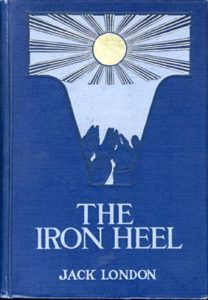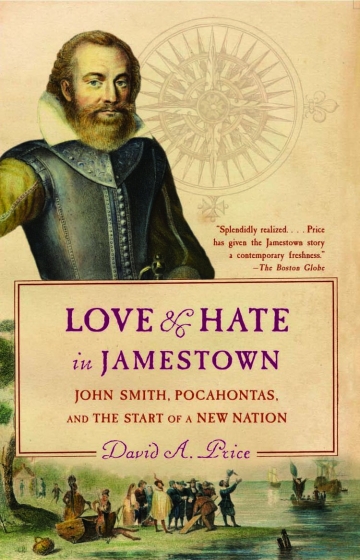More information about this six-session course is here. and here. This section of the course is free but you should preregister.
Yes, it is possible to end poverty in America — or any independent nation — by recognizing a clear and logical distinction between private property and community property. Not just the poor, but everyone would have the opportunity to earn a decent living and enjoy better quality of life. Henry George, a famous American philosopher and economist of the late 19th century, was the most prominent advocate of this reform. His book on the subject, Progress and Poverty, probably the best-selling nonfiction work of his time, sparked a movement which brought prosperity to several American communities and foreign countries.
Introducing Progress and Poverty is a program by the Henry George School of Chicago, outlining the principles George advocated, how and why they work, and their potential for solving today’s problems in this city and elsewhere. Attendance is without charge or obligation.
For those wanting in-depth understanding of the logic and implications of Progress and Poverty, this presentation is also the first session of an extended course, meeting at the same location on the next six Fridays.
This event is open to everyone. RSVP is optional by email or by phoning us at 312 362-9302.
If you are interested in the topic but this date and location don’t fit your schedule, please sign up for our announcement list.
Introducing Progress and Poverty will also be offered on January 12 on the northwest side of Chicago, and January 15 in the Loop.
Yes, it is possible to end poverty in America — or any independent nation — by recognizing a clear and logical distinction between private property and community property. Not just the poor, but everyone would have the opportunity to earn a decent living and enjoy better quality of life. Henry George, a famous American philosopher and economist of the late 19th century, was the most prominent advocate of this reform. His book on the subject, Progress and Poverty, probably the best-selling nonfiction work of his time, sparked a movement which brought prosperity to several American communities and foreign countries.
Introducing Progress and Poverty is a program by the Henry George School of Chicago, outlining the principles George advocated, how and why they work, and their potential for solving today’s problems in this city and elsewhere. Attendance is without charge or obligation.
For those wanting in-depth understanding of the logic and implications of Progress and Poverty, this presentation is also the first session of an extended course, meeting Tuesday evenings at 333 S Wabash Ave #2700 from January 22nd thru March 19.
This event is open to everyone. RSVP is optional by email or by phoning us at 312 362-9302.
If you are interested in the topic but this date and location don’t fit your schedule, please sign up for our announcement list.
Introducing Progress and Poverty will also be offered on January 11, 2019, at Levy Center Evanston Introducing Progress and Poverty at Levy Center Evanston and on January 15, 2019, in the Loop. Introducing Progress and Poverty in the Loop
Yes, it is possible to end poverty in America — or any independent nation — by recognizing a clear and logical distinction between private property and community property. Not just the poor, but everyone would have the opportunity to earn a decent living and enjoy better quality of life. Henry George, a famous American philosopher and economist of the late 19th century, was the most prominent advocate of this reform. His book on the subject, Progress and Poverty, probably the best-selling nonfiction work of his time, sparked a movement which brought prosperity to several American communities and foreign countries.
Introducing Progress and Poverty is a program by the Henry George School of Chicago, outlining the principles George advocated, how and why they work, and their potential for solving today’s problems in this city and elsewhere. You may attend without charge or obligation.
For those wanting in-depth understanding of the logic and implications of Progress and Poverty, this presentation is also the first session of an extended course, meeting Tuesdays at the same time and place thru March 19.
This event is open to everyone. Due to building restrictions, RSVP is MANDATORY by email or by phoning us at 312 362-9302. The security desk will have a badge for you.
If you are interested in the topic but this date and location don’t fit your schedule, please sign up for our announcement list.
Introducing Progress and Poverty will also be offered on January 11, 2019, at Levy Center Evanston Introducing Progress and Poverty at Levy Center Evanston on January 12, 2019, in the Irving Park neighborhood on the northwest side of Chicago. Introducing Progress and Poverty in Irving Park
 Bob Matter’s Political Economy Book Club is reading Jack London’s dystopian novel The Iron Heel. On June 25 we’ll discuss chapters 1-13, and on July 23 chapters 14-25. This 1908 text is available free from Project Gutenberg, in hardcopy from some public libraries, or as an audiobook. You can buy used hardcopies for < $10 from several vendors.
Bob Matter’s Political Economy Book Club is reading Jack London’s dystopian novel The Iron Heel. On June 25 we’ll discuss chapters 1-13, and on July 23 chapters 14-25. This 1908 text is available free from Project Gutenberg, in hardcopy from some public libraries, or as an audiobook. You can buy used hardcopies for < $10 from several vendors.
We’ll meet at the East Loop location of Bridgeport Coffeehouse, 73 E Jackson Blvd.
 Bob Matter’s Political Economy Book Club concludes its discussion of Jack London’s dystopian novel The Iron Heel. On July 23 we treat chapters 14-25.
Bob Matter’s Political Economy Book Club concludes its discussion of Jack London’s dystopian novel The Iron Heel. On July 23 we treat chapters 14-25.
We’ll meet at the east loop location of Bridgeport Coffee, 73 E Jackson.
PLEASE NOTE: Due to building rules you must register to attend this session.
Yes, it is possible to end poverty in America — or any independent nation — by recognizing a clear and logical distinction between private property and community property. Not just the poor, but everyone would have the opportunity to earn a decent living and enjoy better quality of life. Henry George, a prominent American philosopher and economist of the late 19th century, was the leading advocate of this reform. His book on the subject, Progress and Poverty, was probably the best-selling nonfiction work of his time, sparked a movement which brought prosperity to several American communities and foreign countries.
Introducing Progress and Poverty is a program by the Henry George School of Chicago, outlining the principles George advocated, how and why they work, and their potential for solving today’s problems — not just poverty but everything that follows from it, such as lack of affordable housing, employment discrimination, inadequate wages, political corruption, etc. Attendance is without charge or obligation.
For those wanting in-depth understanding of the logic and implications of Progress and Poverty, this presentation constitutes the initial session of an extended course which will continue at this location on Tuesdays thru November 19
If you are interested in the topic but this date and location doesn’t fit your schedule, please sign up for our announcement list.

Decades before Wealth of Nations, Adam Smith wrote what he seems to have considered a superior work, Theory of Moral Sentiments. He wrote:
How selfish soever man may be supposed, there are evidently some principles in his nature, which interest him in the fortune of others, and render their happiness necessary to him, though he derives nothing from it except the pleasure of seeing it.
Wikipedia asserts:
Smith critically examines the moral thinking of his time, and suggests that conscience arises from dynamic and interactive social relationships through which people seek “mutual sympathy of sentiments.”[74] His goal in writing the work was to explain the source of mankind’s ability to form moral judgement, given that people begin life with no moral sentiments at all. Smith proposes a theory of sympathy, in which the act of observing others and seeing the judgements they form of both others and oneself makes people aware of themselves and how others perceive their behaviour.
The Theory of Moral Sentiments has been printed in numerous editions, and is also available free on line. Smith revised the book throughout his lifetime; it’s best to avoid the first edition, and choose one published after his death in 1790.
In this session we’ll discuss parts 1-3 of the book, taking up parts 4-7 on November 20,
 “In 1606, approximately 105 British colonists sailed to America, seeking gold and a trade route to the Pacific. Instead, they found disease, hunger, and hostile natives. Ill prepared for such hardship, the men responded with incompetence and infighting. Only the leadership of Captain John Smith averted doom….” (from the book jacket).
“In 1606, approximately 105 British colonists sailed to America, seeking gold and a trade route to the Pacific. Instead, they found disease, hunger, and hostile natives. Ill prepared for such hardship, the men responded with incompetence and infighting. Only the leadership of Captain John Smith averted doom….” (from the book jacket).

